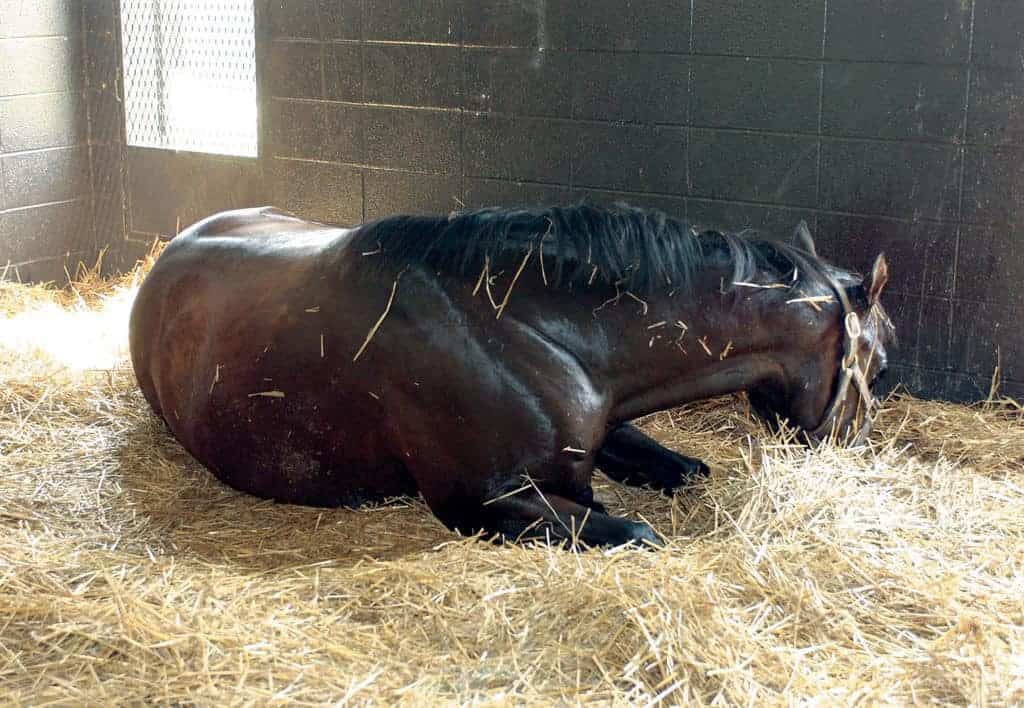Bad Horse Bugs
Horse owners and vets must use antimicrobials responsibly to help reduce bacterial drug resstance.
Horse owners and vets must use antimicrobials responsibly to help reduce bacterial drug resstance.
The American Association of Equine Practitioners’ to host joint meetings, “Focus on Colic” and “Business
The American Association of Equine Practitioners (AAEP) Foundation will host the 10th International Equine Colic Research Symposium, July 26-28, 2011, in Indianapolis, Ind. The symposium, held every three years, alternating between Europe and North
Colic and its causes are part of most owners’ horse care vocabulary–an intestinal twist, sand accumulation, or gas buildup might be among the familiar events leading to equine abdominal pain. But owners might not be aware of another, less-frequent
On May 3 the University of Pennsylvania’s New Bolton Center (NBC) will present a lecture entitled “You Think It’s Colic but It’s Not” at 6:30 p.m. The lecture is part of the First Tuesdays Lecture Series at the School of Veterinary Medicine at New
Monarchos, the 2001 Kentucky Derby winner, is recovering from colic surgery performed April 19 at Hagyard Equine Medical Institute near Lexington, Ky. He stands at Charles Nuckols III’s Nuckols Farm near Midway, Ky.

Gastric ulcers can affect horses of all breeds, ages, shapes, and sizes, including weanlings.
International reports of contagious equine metritis, equine herpesvirus, equine influenza, strangles, equine piroplasmosis, equine arteritis virus, Eastern equine encephalomyelitis, West Nile virus, salmonella, and more.
Monitoring lactate levels in samples of peritoneal fluid can help a vet predict which colicky horses require surgery.
Colicky horses that undergo exploratory surgery and are ultimately diagnosed with an ileal impaction appear to benefit from a single injection of carboxymethylcellulose (CMC) into the ileum to resolve the problem, according to veterinarians from
Veterinarians commonly treat many equine infections with antimicrobial drugs to achieve resolution. However, in some cases, the antimicrobials themselves induce gastrointestinal disturbances with subsequent diarrhea. “This unfortunate side effect of

The horse’s large intestine absorbs large volumes of fluid from the bowel. When a situation interferes with fluid absorption from the large colon, fluid passes quickly from the body to increase the water content of the feces, resulting in diarrhea.

Ulcers can occur in horses of all disciplines and management situations, although horses in higher stress environments do appear to be more susceptible. There’s no cure-all for equine gastric ulcer syndrome, but proper management and prevention methods can help your horse remain ulcer-free.
Cold winds and changing winter weather might not seem like contributing factors for equine colic; however, these conditions can foster changes in routine and eating habits that could affect your horse’s well-being.
Colonization of the foal’s GI tract by pathogenic organisms can lead to diarrhea. Research has focused on identifying organisms responsible for the diarrhea, but less research has looked at what allows the pathogenic organisms to become established.

All about equine colic, from when to call the vet to how well horses recover from surgery.
Stay on top of the most recent Horse Health news with
"*" indicates required fields